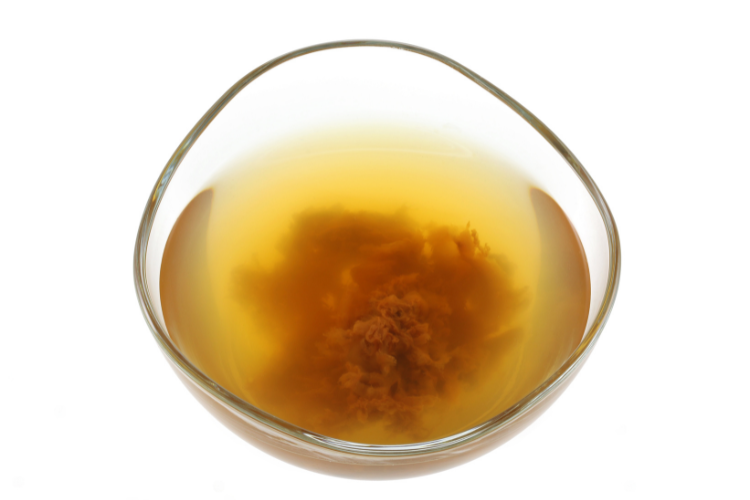In the realm of natural health remedies, few ingredients have gained as much popularity as apple cider vinegar (ACV). With a rich history dating back centuries, this tangy elixir has found its way into modern kitchens and households for its numerous potential benefits. In this in-depth guide, we’ll delve into the world of apple cider vinegar, uncovering its origins, shedding light on the unique “mother” that sets it apart, and exploring its versatile applications.
Origins and Composition
The Genesis of Apple Cider Vinegar
Apple cider vinegar has a storied history that dates back to ancient civilizations. It was cherished by the Egyptians for its potential health benefits and used as a tonic in traditional medicine practices. The process of making
ACV involves fermenting crushed apples with yeast and bacteria, resulting in the transformation of sugars into alcohol, which is subsequently fermented into vinegar.
Key Components of ACV
ACV’s potency lies in its complex composition. It contains acetic acid, which gives it its distinctive tangy flavor and contributes to its potential health benefits. Moreover, ACV contains vitamins, minerals, enzymes, and beneficial bacteria that play a pivotal role in its various applications.
Unveiling the Mother: What It Is and Why It Matters
Defining the Mother in ACV
The term “mother” refers to a cloudy, string-like substance that forms naturally in raw, unfiltered apple cider vinegar. This web-like formation consists of beneficial bacteria, enzymes, and proteins that result from the fermentation process. It signifies that the ACV is unpasteurized and contains living nutrients.
The Benefits of Embracing the Mother
While the mother might seem peculiar, it holds significant value. The presence of the mother indicates that the ACV retains its natural goodness and potential health benefits. The bacteria and enzymes in the mother can aid digestion, support gut health, and contribute to the overall vitality of the vinegar.
Culinary & Health Applications
Culinary Marvel: ACV in Cooking
In the culinary realm, apple cider vinegar shines as a versatile ingredient. Its acidic profile lends itself well to salad dressings, marinades, and sauces, adding a zesty kick to dishes. Beyond flavor enhancement, ACV can also tenderize meat and act as a natural preservative due to its acidic nature.
A Refreshing Beverage and Digestive Aid
A popular health ritual involves incorporating a splash of ACV into a glass of water. This concoction is believed to aid digestion and promote a feeling of satiety. Its acid content may help stimulate stomach acid production, potentially assisting in breaking down food and alleviating indigestion.
Beyond the Kitchen
Natural Household Cleaner
ACV’s usefulness extends beyond culinary applications. It serves as an effective natural household cleaner due to its antimicrobial properties. Diluted with water, ACV can be used to clean surfaces, deodorize rooms, and even act as a glass cleaner.
Skin and Hair Care Ally
ACV’s potential benefits for skin and hair have garnered attention in recent years. When diluted with water, ACV can serve as a toner, helping to balance skin pH and reduce the appearance of blemishes. For hair, a rinse with diluted ACV can promote shine, remove buildup, and contribute to a healthy scalp.
Tips: Create shiny, untangled and dandruff-free hair by adding 1/3 cup ACV to 4 cups of water and pour over your hair after shampooing. Leave on for a few seconds and rinse with cold water.
Alkalizing Bath Soak
Adding a cup of ACV to your bathwater may offer surprising benefits. ACV’s alkalizing properties can help balance the skin’s pH, potentially providing relief from skin irritations and promoting overall skin health.
Incorporating ACV into Your Routine: Tips and Precautions
Finding the Right Type of ACV
When selecting apple cider vinegar, opt for the raw, unfiltered, and unpasteurized variety to ensure the presence of the beneficial mother. Look for a reputable brand that emphasizes these characteristics on the label.
Dosage and Consumption Guidelines
For daily consumption, a common recommendation is to mix one to two tablespoons of ACV with water and consume it before meals. However, it’s crucial to listen to your body and start with smaller amounts to assess your tolerance.
Potential Side Effects and Precautions
While ACV can offer various benefits, excessive consumption may lead to adverse effects such as tooth enamel erosion and digestive discomfort. Always dilute ACV with water to reduce its acidity and protect your teeth. It’s also advisable to consult with a healthcare professional before making ACV a regular part of your routine, especially if you have underlying health conditions.
Emerging Research and Promising Findings
As interest in natural health remedies continues to grow, so does the research on apple cider vinegar. Emerging studies are exploring ACV’s potential role in various aspects of health, from blood sugar regulation to weight management. While more research is needed to establish definitive conclusions, the promising findings are sparking further intrigue.
Takeaway
Apple cider vinegar’s journey from ancient elixir to modern-day health tonic is a testament to its timeless appeal. From enhancing culinary creations to serving as a natural household solution, ACV offers a treasure trove of applications. Embrace the mother-rich variety to unlock the full potential of this natural powerhouse and integrate it into your daily routine for a holistic approach to health, wellness, and vitality.



 Indonesia
Indonesia




